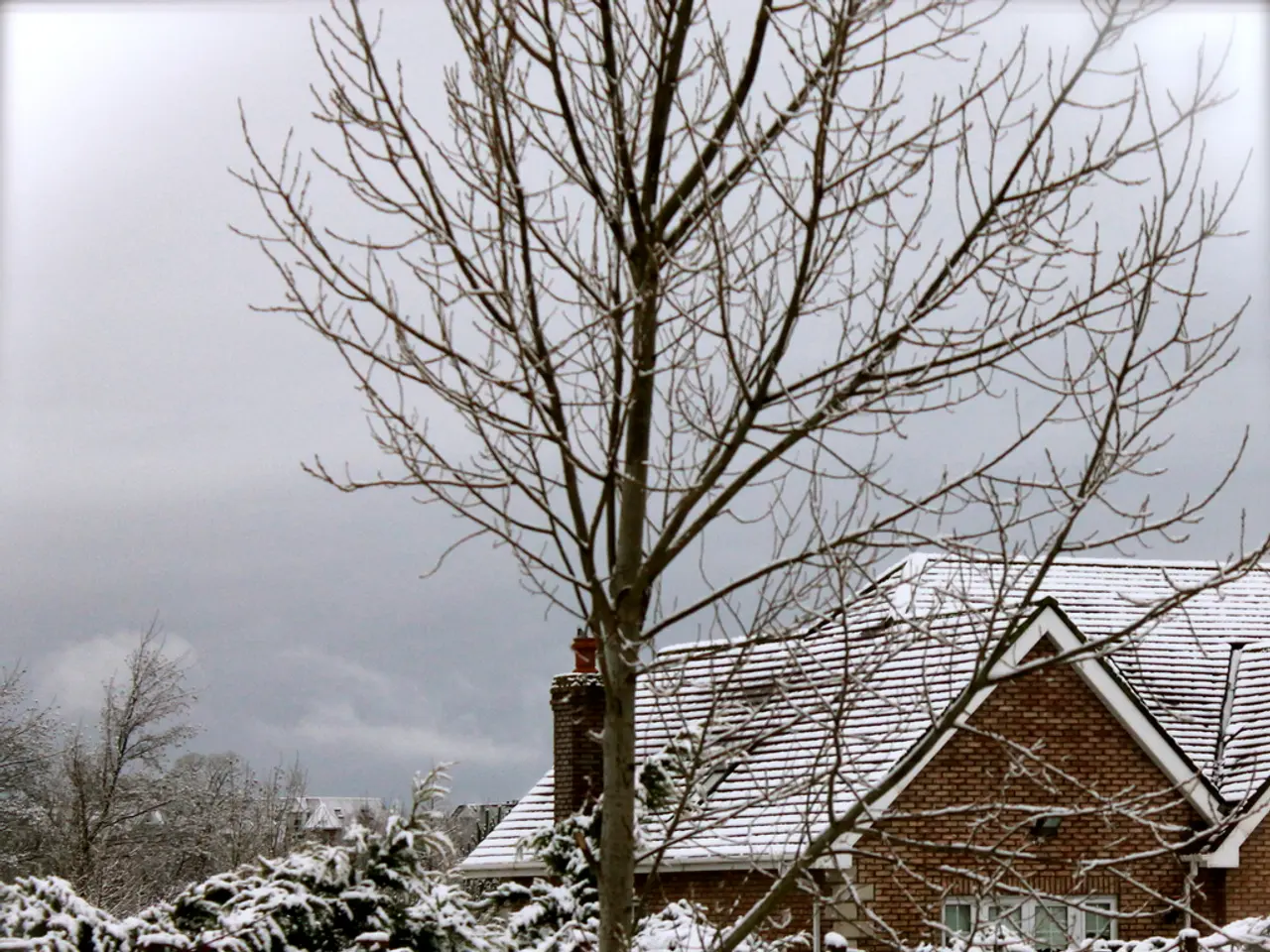Lay off the shovel! Winter gardening might bring more damage than benefits.
As winter sets in across the UK, the garden may seem a bleak and dormant place. However, this season offers unique opportunities to protect your garden from harm and create a nurturing environment for wildlife.
**Protecting Your Garden in Winter**
With the cold winds and storms, it's essential to secure climbing plants and trees. Make sure they are attached firmly to supports, and check tree ties and stakes. Digging over empty borders and adding mulch, such as manure or compost, can improve the soil's structure and fertility. Vulnerable plants should be positioned in sheltered spots and protected with cloches, fleece, or mulch to insulate their roots and stems. Feeding and watering roses and other plants after their first flush, while keeping the soil moist but not waterlogged, can also help them survive the winter. Propping up perennials with stakes can prevent wind damage as they grow tall.
**Promoting Wildlife in Winter**
Leaving seedheads and berries on plants provides food for birds and insects throughout the winter. Creating wildlife habitats by piling up logs, leaves, or brash offers shelter for insects, amphibians, and small mammals. Regularly feeding birds with seeds, nuts, and fat balls can support them during the colder months. Resisting the urge to tidy up every leaf and dead plant can also benefit wildlife.
**Specific Winter Gardening Tasks**
Harvesting holly berries for festive decorations is possible, but leaving some for wildlife is recommended. Dividing and renewing established perennials, such as rhubarb, can keep them healthy and promote more growth. This time of year is also ideal for planning your garden, ordering seeds, and preparing beds for spring planting.
By following these recommendations, you can minimize harm to your garden and create a nurturing environment for wildlife throughout the UK winter. It's essential to remember that January is not a time for active gardening but a time to think, plan, and prepare for the spring. Practical gardening tasks, such as tidying the shed or cleaning the greenhouse, can still be performed.
While the garden may appear bleak, it's a vibrant and essential habitat for many creatures. So, let's take care of our gardens and support the wildlife that calls them home.
- To protect your garden during winter, secure climbing plants and trees, ensuring they are firmly attached to supports and checked for tree ties and stakes.
- Promoting wildlife in winter can be achieved by leaving seedheads and berries on plants for food and creating wildlife habitats by piling up logs, leaves, or brash.
- Specific winter gardening tasks include harvesting holly berries for festive decorations, dividing and renewing established perennials like rhubarb, and planning your garden, ordering seeds, and preparing beds for spring planting.
- To maintain a home-and-garden lifestyle during winter, consider practical tasks like tidying the shed or cleaning the greenhouse, while remembering that active gardening tasks may be limited due to the colder weather.




